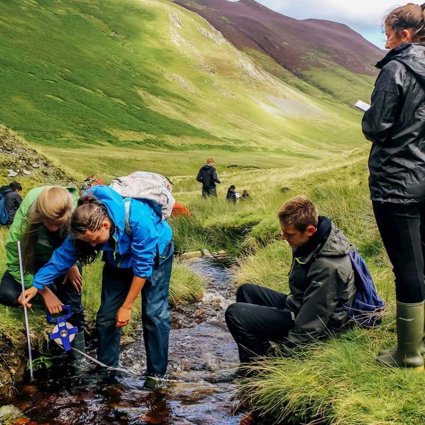
Designing a new fieldwork experience: Starting out
Begin by thinking about what you want students to gain from any fieldwork experiences they have in that academic year. These learning objectives do not necessarily need to be something novel for students: fieldwork can be used to reinforce learning that has already been touched upon in the classroom. It is likely at this stage that teachers will naturally go back and forth between the intended learning objectives and how closely these correspond with the taught content in the curriculum or awarding body specification. Teachers need also be mindful of what fieldwork experiences students may have already had, both at feeder primary schools and at earlier key stages.
It might be easiest to think of these objectives in the traditional trichotomy of knowledge, understanding and skills, and to think about how the learning objectives in fieldwork could be balanced between all three. Part of this initial thinking is to consider whether students will be undertaking a geographical enquiry with a set title question and hypothesis or alternatively taking the opportunity to simply observe geography in action with no data recording, or indeed a combination of the two. In the former, you should establish an investigative title for students and start thinking about the kind of data collection techniques students would need to do in order to satisfy it. In the latter, you should start to list the features and processes you wish students to observe and experience.
Early on in the planning process, you also need to consider where the fieldwork is going to take place. It could be that the fieldwork location actually becomes more of a deciding factor for the design of the fieldwork than the learning objectives, especially for schools that have large cohorts to take out and where the cost of travel is prohibitive to fieldwork taking place in any desired location possible.
It is a good idea at this stage to do a recce of the fieldwork site to begin the process of visualising the fieldwork your students are going to undertake, especially if the site is an area with which you are unfamiliar. Time can be easily wasted in planning fieldwork for a location in detail only to find that access to a particular site is compromised or that the geography there just doesn’t ‘work’ as one might expect. It is during this initial recce that you should also consider what conclusions students are likely to draw from doing investigative fieldwork there. If the geography in that location is somewhat ‘neat’, it might be better suited to younger year groups that are just starting out in the subject, while locations where the geographical connections are more complex and ‘messy’ might be better suited to older students who have a wider range of geographical understanding and so can make sense of real world geography that might contradict the theory they have studied in the classroom.
In summary:
-
Establish what you want the students to learn, focussing on knowledge, understanding and skills.
-
Marry the knowledge and understanding you think will be developed in the field with taught content in the curriculum or awarding body specification.
-
Begin to think about the activities you wish students to do while in the field.
-
Conduct a recce on a location that suits the tasks and the objectives of the fieldwork.
-
Consider whether the outcomes of the fieldwork in this location will produce predictable and easy to comprehend conclusions or data with more nuance and geographical ‘messiness’.
-
Decide whether these fieldwork outcomes are suitable for the year group you have in mind.
Go to next section: Beginning to draw the fieldwork together
